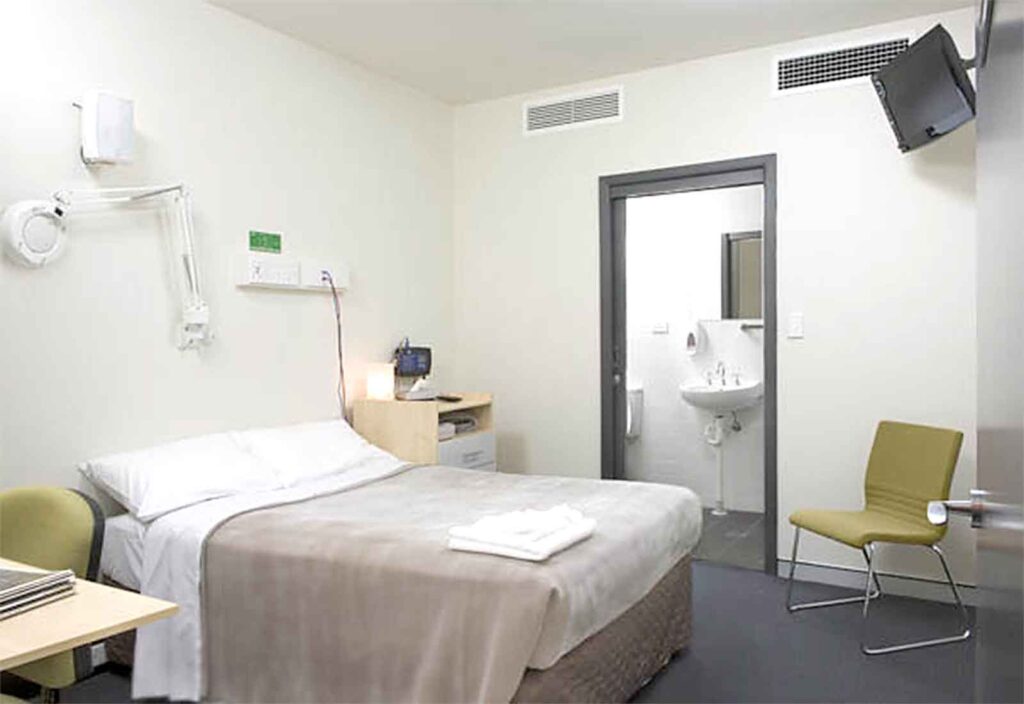Sleep disorders affect millions of Australians, impacting their daily lives and long-term health. Home sleep studies have emerged as a game-changing solution for Sydney residents seeking diagnosis and treatment for conditions like sleep apnoea.
These innovative diagnostic tests allow patients to undergo comprehensive sleep monitoring from the comfort of their own beds. The process involves wearing small, portable monitoring devices that track vital sleep metrics throughout the night – a stark contrast to traditional laboratory-based sleep studies.
The rising popularity of home sleep studies in Sydney stems from their:
- Convenience – No overnight hospital stays required
- Comfort – Testing in familiar surroundings
- Accessibility – Medicare-eligible for qualifying patients
- Accuracy – Professional-grade monitoring equipment
Sleep apnoea, when left undiagnosed, can lead to serious health complications including cardiovascular disease, diabetes, and cognitive impairment. The availability of home sleep studies has made it easier for Sydney residents to take proactive steps in identifying and addressing potential sleep disorders.
These at-home diagnostic services combine medical expertise with patient comfort, revolutionising the approach to sleep disorder diagnosis in Sydney’s healthcare landscape.

Understanding Home Sleep Studies
A home sleep study is a non-invasive way to diagnose sleep problems. It uses advanced portable monitoring technology to examine sleep patterns and potential disorders. During the study, you’ll wear a small recording device overnight, which is connected to various sensors that monitor important sleep-related factors.
Home sleep studies Sydney represent a significant advancement in sleep disorder diagnosis. The accessibility, convenience, and effectiveness of these studies make them an invaluable tool for identifying conditions like obstructive sleep apnea.
What Does the Monitoring Equipment Include?
The monitoring equipment consists of:
- A small chest belt to measure breathing patterns
- A finger probe for oxygen saturation levels
- Nasal cannula to detect airflow
- Sensors to track body position and movement
Read more at: Where to Get a Sleep Apnea Test in Sydney And When You Should
What Data Does the Study Collect?
The devices used in the home sleep study gather extensive information about:
- Breathing rates and patterns
- Blood oxygen levels
- Heart rate variations
- Sleep positions
- Snoring intensity
- Body movements
Once activated, the portable sleep monitoring system works automatically without requiring much involvement from you. The data collected creates a detailed picture of your sleep quality and any disruptions that may occur, helping sleep specialists identify conditions like sleep apnoea.
Why Choose a Home Sleep Study?
There are several reasons why conducting the study at home can be beneficial:
- It allows you to sleep in your natural environment.
- You can maintain your regular bedtime routine.
- It reduces any anxiety you may have about the testing process.
- Children and elderly patients feel more comfortable in familiar surroundings.
- Your daily schedule won’t be disrupted.
This approach is especially advantageous for patients with mobility issues or those living in remote areas. The advanced yet easy-to-use technology ensures accurate data collection while prioritising your comfort throughout the assessment period.
If you’re considering a home sleep study in Perth, Brisbane, Melbourne, or Sydney, these studies can provide valuable insights into your sleep health while ensuring comfort and convenience.

The Patient Pathway for Home Sleep Studies in Sydney
The journey toward a home sleep study in Sydney begins with a GP referral. Patients experiencing sleep-related symptoms can schedule an appointment with their general practitioner or specialist to discuss their concerns. Upon assessment, the healthcare provider determines the necessity for a sleep study and issues a formal referral.
The diagnostic process follows a structured pathway:
- Initial Consultation
- Assessment of sleep-related symptoms
- Medical history review
- Referral documentation completion
- Pre-Study Setup
- Appointment at a local sleep clinic
- Professional sensor attachment demonstration
- Comprehensive instruction session
- Home Testing Period
- Single-night monitoring in patient’s home
- Recording of vital sleep parameters
- Automated data collection via portable device
- Post-Study Procedures
- Equipment return to clinic
- Data download and analysis
- Report generation by sleep specialists
The collected data undergoes thorough analysis by qualified sleep specialists who interpret the results and provide detailed recommendations. This systematic approach ensures accurate diagnosis while maintaining patient comfort and convenience throughout the testing process. Read more about maintaining at https://pressbooks-dev.oer.hawaii.edu/biology/chapter/homeostasis/
Medicare benefits apply to eligible patients who obtain the necessary referral documentation. Private health insurance providers might offer additional coverage options for the diagnostic procedure, depending on the specific policy terms.
Who is Suitable for a Home Sleep Study?
Home sleep studies are an excellent diagnostic tool for patients suspected of having obstructive sleep apnea with straightforward symptoms. The most suitable candidates include:
- Adults experiencing common sleep apnea signs such as:
- Regular snoring
- Witnessed breathing pauses during sleep
- Daytime sleepiness
- Morning headaches
- Patients without significant medical complications
- Individuals with adequate mobility to set up the equipment
- Those able to follow basic technical instructions
In-Lab Testing Requirements
Certain conditions require traditional laboratory sleep studies, such as those that can be conducted in cities like Hobart, Adelaide, or Canberra:
- Heart failure or significant cardiac conditions
- Neuromuscular disorders
- Chronic respiratory failure
- Complex sleep disorders beyond sleep apnea
- Previous unsuccessful home sleep studies
- Physical limitations affecting device setup
The decision between home and laboratory testing depends on individual patient assessment by qualified healthcare professionals. Sleep specialists evaluate medical history, symptoms, and risk factors to determine the most appropriate testing method for accurate diagnosis.
Advantages of Home Sleep Studies in Sydney
Home sleep studies offer distinct benefits that make them an attractive option for Sydney residents seeking sleep disorder diagnosis. The familiar comfort of one’s bedroom creates an ideal environment for natural sleep patterns, resulting in more accurate test results compared to unfamiliar hospital settings.
Convenience and Comfort
Home sleep studies offer distinct benefits that make them an attractive option for Sydney residents seeking sleep disorder diagnosis. The familiar comfort of one’s bedroom creates an ideal environment for natural sleep patterns, resulting in more accurate test results compared to unfamiliar hospital settings.
Advanced Yet Simple Technology
The portable monitoring devices used in home sleep studies feature sophisticated yet user-friendly technology. These compact units attach easily to the body and automatically record essential data throughout the night, including: Click here to find more about technology.
- Breathing patterns and rates
- Blood oxygen levels
- Heart rhythm
- Body position changes
- Snoring intensity
The simplicity of these devices allows patients to manage the setup independently after receiving proper instruction from healthcare professionals. The equipment typically includes clear visual guides and straightforward connection points, minimising the risk of incorrect placement.
Financial Accessibility
Medicare rebates make home sleep studies financially accessible for eligible Sydney residents. Under current MBS guidelines, patients with a valid referral can claim benefits for:
- Initial diagnostic studies
- Follow-up assessments
- Related consultations with sleep specialists
Private health insurance providers often complement Medicare coverage, potentially reducing out-of-pocket expenses for subsequent treatments like CPAP therapy. The combination of comfort, technological simplicity, and financial support through Medicare makes home sleep studies a practical choice for Sydney residents investigating potential sleep disorders.
Role of Air Liquide Healthcare and Partner Networks
Air Liquide Healthcare is Australia’s largest provider of home sleep apnea studies and therapy initiation programs. The organisation offers a wide range of sleep solutions, including:
- Diagnostic services through home-based sleep studies
- CPAP therapy initiation and customised titration programs
- Ongoing patient support and equipment maintenance
- Regular progress monitoring and therapy adjustments
Integrative Approach
The company’s integrative approach combines clinical expertise with technological innovation. Sleep Physicians validate all diagnostic results and treatment recommendations, ensuring high standards of medical care.
Strategic Partnerships
Air Liquide Healthcare works closely with leading CPAP manufacturers to provide patients with access to the latest equipment and therapeutic technologies. The network also collaborates with local sleep brands, such as SNORE Australia and Healthy Sleep Solutions, to ensure comprehensive coverage across Sydney.
Partner Network
The partner network consists of:
- SNORE Australia: Specialising in comprehensive sleep diagnostics
- Healthy Sleep Solutions: Focusing on personalised treatment plans
- Complete Care: Providing ongoing support services
- Sleep Disorder Australia (SDCA): Offering specialised sleep health expertise
This established network allows for smooth coordination between healthcare providers, guaranteeing that patients receive consistent care from their initial diagnosis to long-term therapy management. The partnership structure also enables quick access to sleep specialists, reducing waiting times and making the treatment process more efficient for residents of Sydney.
Navigating Costs and Coverage Options for Home Sleep Studies in Sydney
Medicare provides substantial support for home sleep studies in Sydney through specific MBS (Medicare Benefits Schedule) items. Patients meeting the eligibility criteria can access rebates for diagnostic sleep studies when referred by a qualified medical practitioner.
Medicare Coverage Requirements:
- Valid referral from GP or specialist
- Presence of sleep disorder symptoms
- No previous sleep study within the past year
- Bulk billing options available at select providers
The Medicare rebate typically covers:
- Initial consultation
- Equipment provision
- Data analysis
- Follow-up report
Private Health Insurance Benefits
Private health insurance providers offer varying levels of coverage for CPAP therapy following diagnosis. Insurance packages may include:
- Full or partial reimbursement for CPAP equipment
- Rental assistance for trial periods
- Annual maintenance costs
- Replacement parts and accessories
Cost Considerations:
- Out-of-pocket expenses depend on chosen provider
- Gap payments vary between health funds
- Some clinics offer payment plans
- Equipment rental options available
Many Sydney sleep clinics provide detailed cost breakdowns and assist patients in understanding their coverage options. Direct liaison with Medicare and private health insurers helps determine exact rebate amounts and eligible benefits for individual circumstances.
What to Expect During Your Home Sleep Study Experience
A home sleep study begins with a scheduled clinic visit where healthcare professionals provide comprehensive guidance for the overnight monitoring process. During this initial appointment, patients receive:
- Device Setup Training: Step-by-step instructions for attaching sensors and operating the portable monitoring equipment
- Personalised Instructions: Specific guidelines tailored to individual sleeping habits and home environment
- Troubleshooting Guide: Solutions for common technical issues that might arise during the study
The evening of the sleep study requires specific preparation:
1. Bedroom Environment
- Set comfortable room temperature
- Ensure quiet surroundings
- Remove potential sleep disruptions
2. Equipment Setup
- Apply sensors as demonstrated
- Position recording device correctly
- Check battery status
3. Pre-Sleep Routine
- Follow regular bedtime schedule
- Avoid caffeine and alcohol
- Document sleep position changes
Healthcare professionals remain available via phone support throughout the night for technical assistance, ensuring patients feel supported during their home sleep study experience.
Conclusion
Anyone experiencing symptoms such as:
- Loud snoring
- Daytime fatigue
- Morning headaches
- Interrupted breathing during sleep
Should not delay seeking professional medical advice. Healthcare providers across Sydney stand ready to guide patients through the simple process of home sleep testing. With Medicare coverage options and support from established healthcare networks, accessing quality sleep diagnosis has never been more straightforward.
The path to better sleep health starts with a conversation with a GP—a small step that could lead to life-changing improvements in sleep quality and overall wellbeing.
